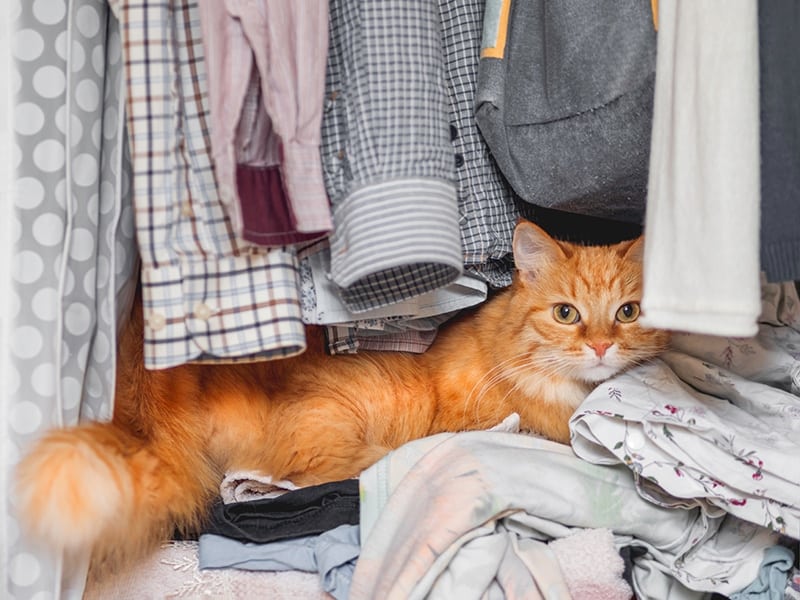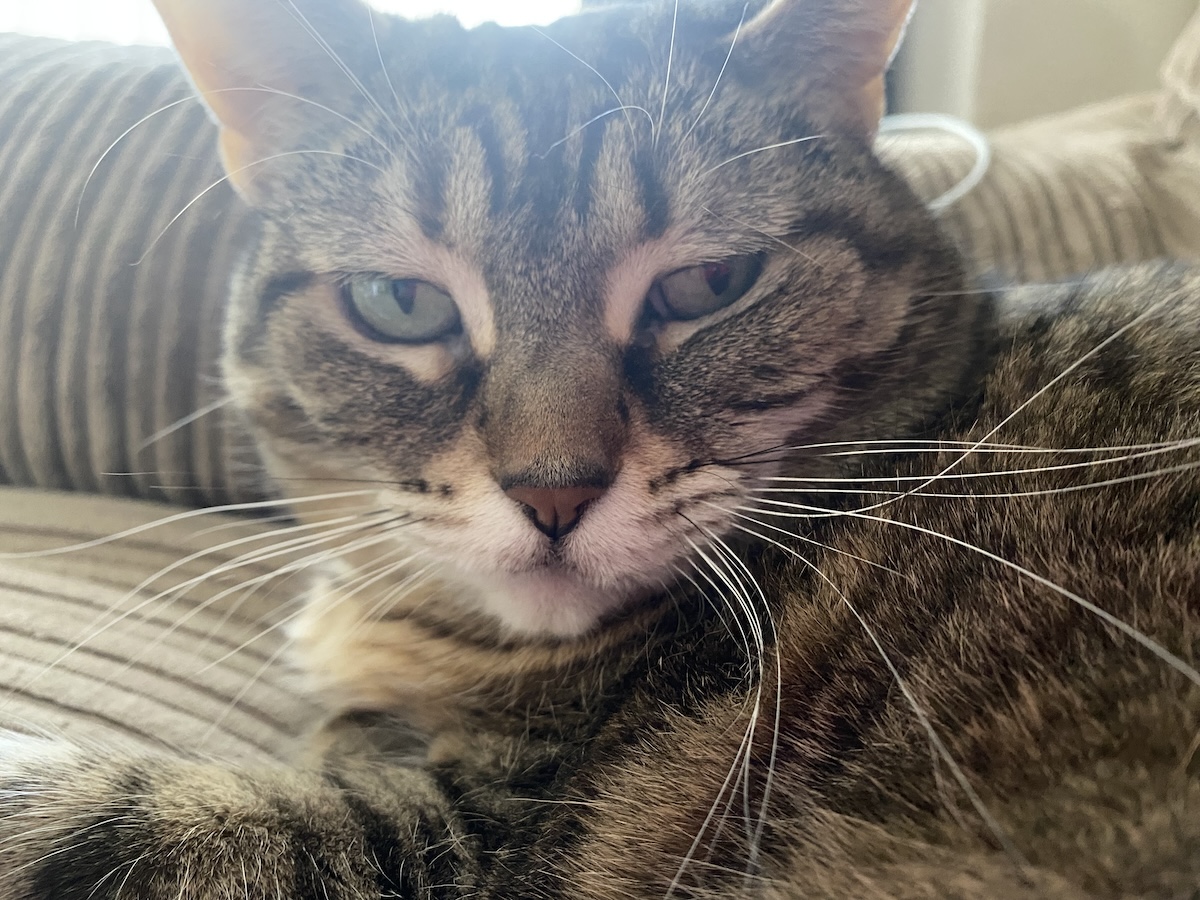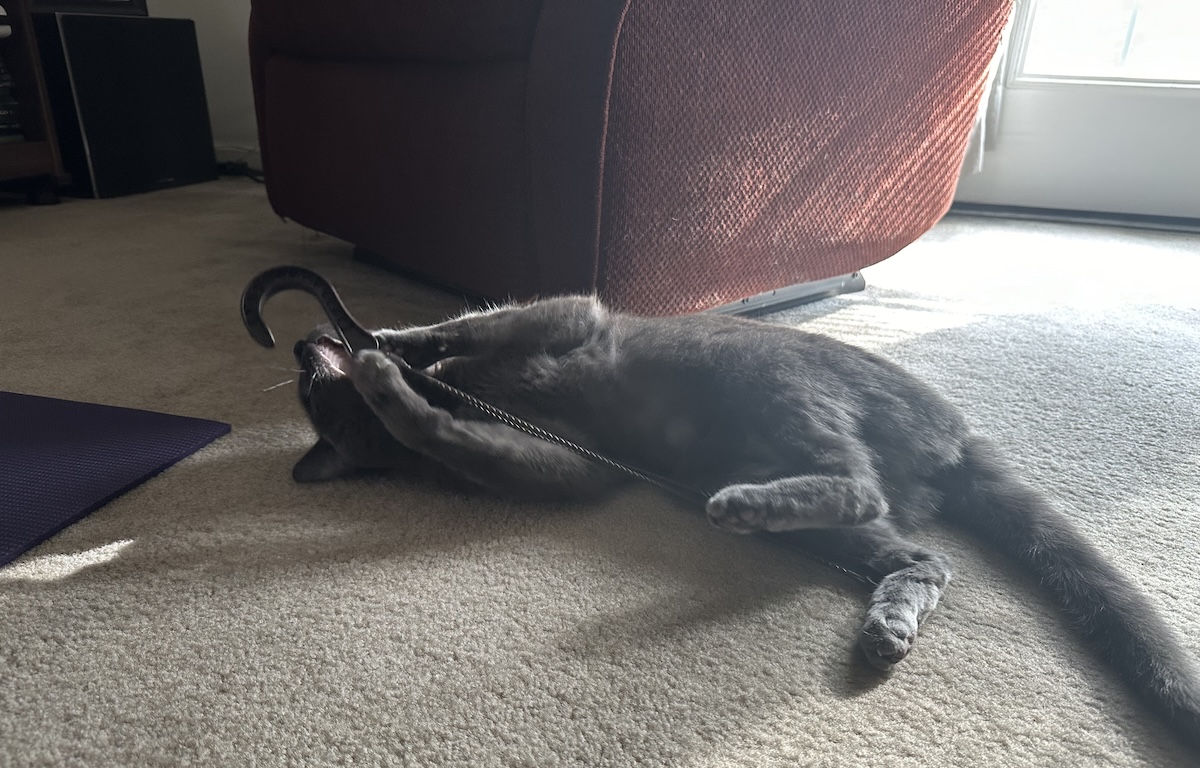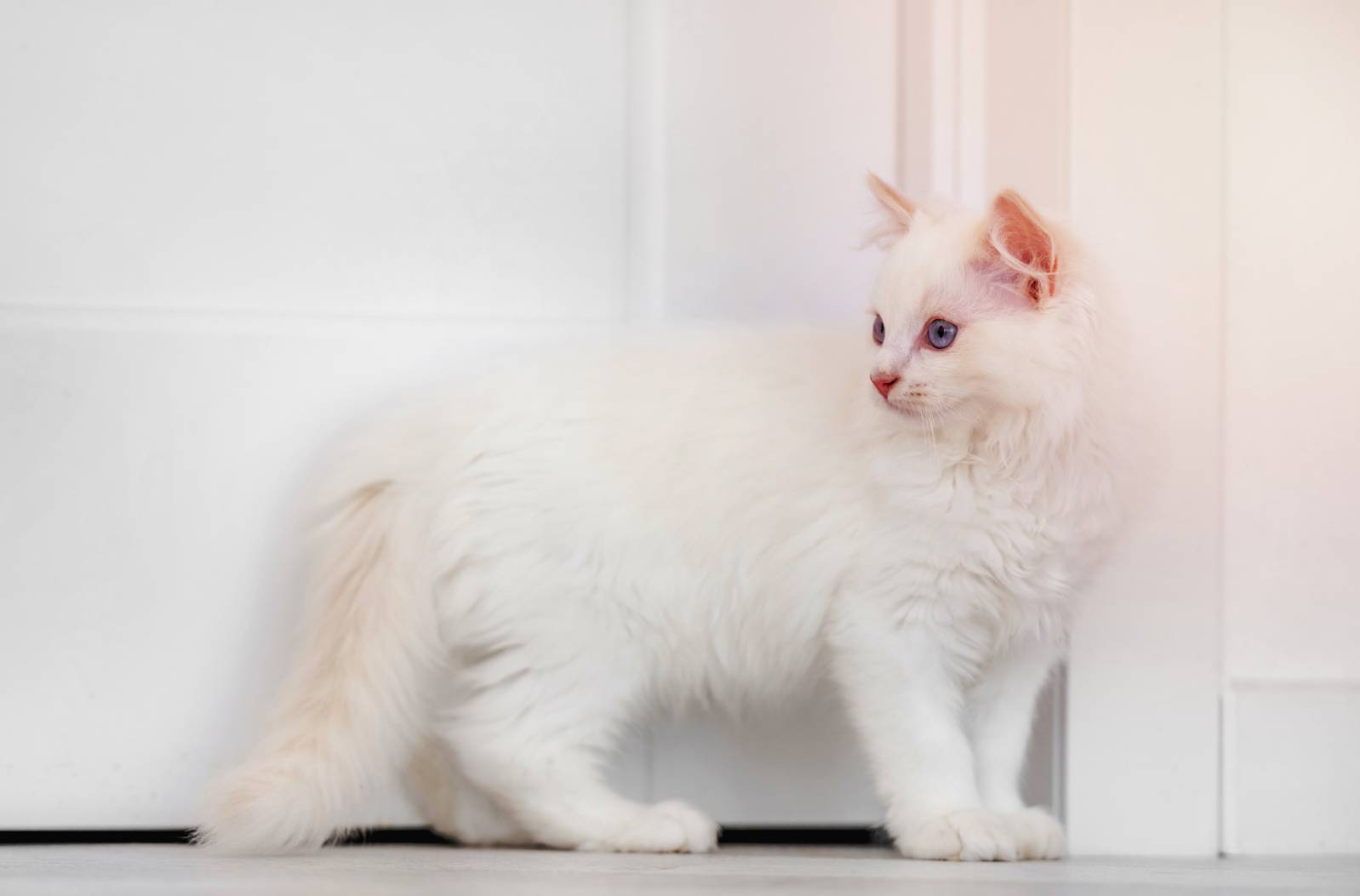Cats are fun pets, but they can exhibit many strange behaviors, one being hiding and sleeping in the closet. We know it can be alarming when your pet suddenly disappears, especially if you aren’t sure why your cat might be doing it. Usually, cats like closets because they provide a dark, warm, cozy, and private spot to hide. Keep reading as we list several of the most common reasons that a cat might hide in the closet and provide tips for getting them to come back out.
The 9 Reasons Why Your Cat Hides and Sleeps in the Closet
1. Health Issue
It’s common for a cat that doesn’t feel well to seek out a dark and quiet area of the home, like a closet. This is instinctive; cats can be hunted by other animals or muscled out of their territory by other cats if they appear weak. Therefore, when cats are sick, they tend to hide themselves.
If you feel like your pet isn’t well, it’s best to take them to a vet to get them examined. Your pet will almost always bounce back faster with earlier intervention and treatment, and your vet can tell you about any serious health issues that might be present.
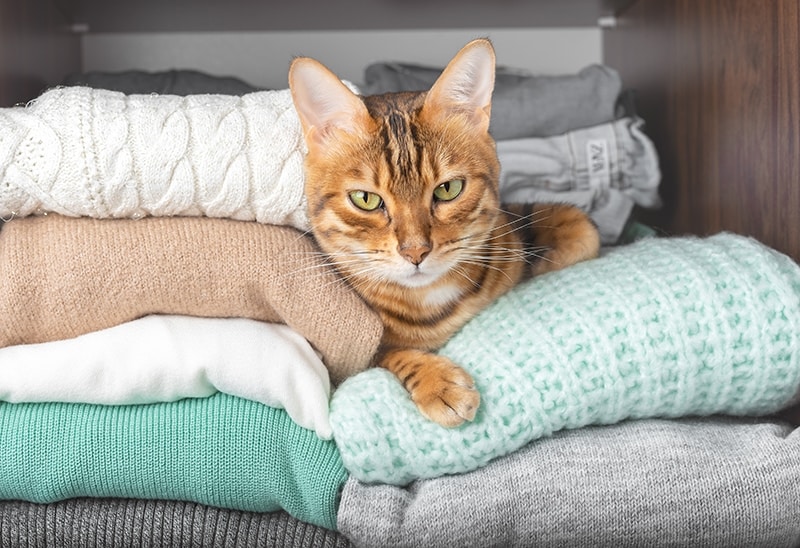
2. Fear
Frightened cats will often hide in the closet for shelter. Things that can frighten your cat include loud noises from fireworks, a storm, any other loud noise, other animals, or even other people. Large vehicles driving by and people knocking on the door may also send a cat running for the closet.
Unfortunately, there isn’t much that you can do about some things that might scare your cat. However, if you know a specific thing your cat fears, you can be proactive about that particular fear. For example, if your cat hates loud noises and you know that loud noises from fireworks or thunder are about to occur, you can try to help comfort the cat by using pheromone diffusers. If your cat’s fears are extreme, talk to your vet about medication for your pet.
3. New Surroundings
Cats like to know every inch of their surroundings, and this includes a closet. Your cat might simply be inspecting the closet to explore it!
Generally speaking, cats are curious and take great interest in the intricacies of their environment. If your cat is exploring your closet out of curiosity, there’s not much you need to do. However, it is important to ensure your closet is properly mounted or secured. If your cat pulls on something that is stuck within the closet, they may inadvertently knock it over.
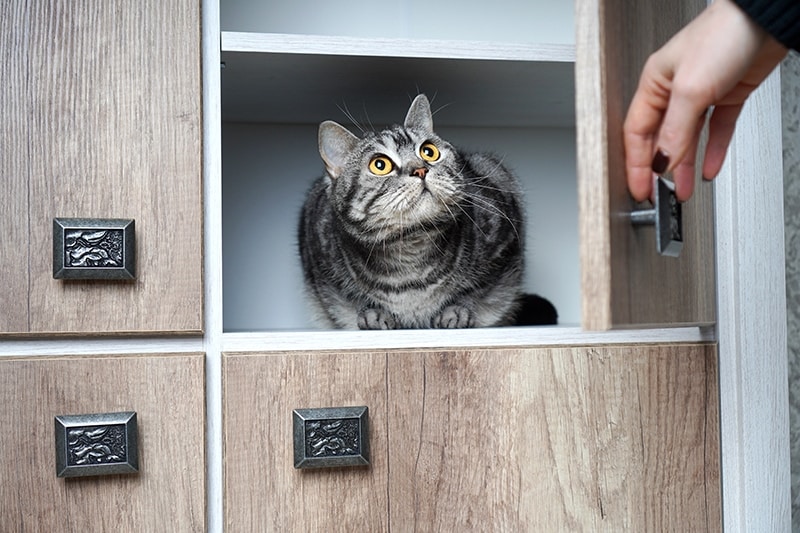
4. New Pet
Cats are territorial animals and can take a while to get used to a new pet. They might look for a hiding place, like the closet, to observe and get familiar with their new family member.
The best way for your cat to get along with other pets is for you to properly introduce them to another pet (assuming the pet is compatible to house with a cat). This is often best done slowly and carefully, while also keeping an eye on your pet for any signs of stress. A sudden introduction can lead to aggressive behavior, fights, or stress for one or both pets.
5. Strange Visitor
Many cats don’t like it when visitors come to the house and will often run for the closet as soon as you open the door—if the doorbell or knock didn’t already send them there.
If the person at your house is only an occasional guest, there likely isn’t anything that you can do to coax out the cat. However, if the guest comes over frequently and spends time visiting, there is a good chance that the cat will get curious about the increasingly familiar sounds and come out. Keep the guests calm, so they don’t startle the cat, and give the cat a treat after they say “hello” so they consider it a pleasurable experience. This can often help cats slowly accept strangers. It may also help to coax your cat by holding them during an introduction, as your cat may associate you with safety.
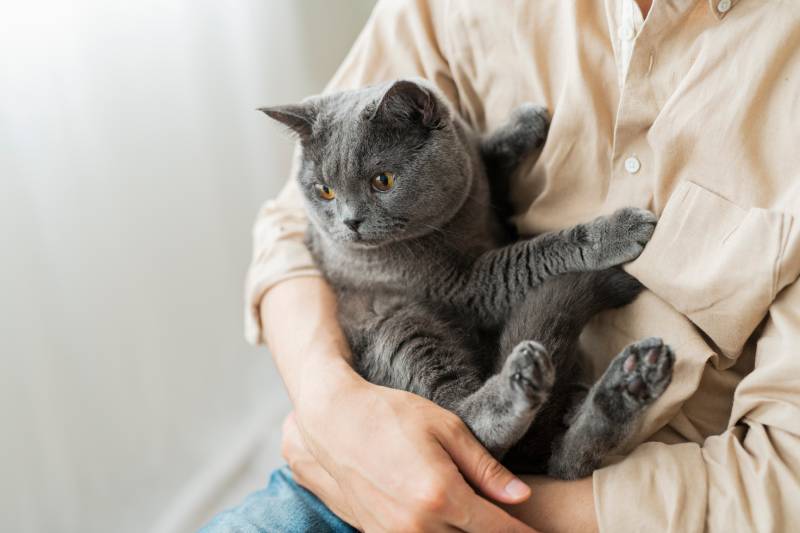
6. Birthing
The closet is a popular choice among female cats for giving birth. If you didn’t spay your female cat and suspect that she might be pregnant, her suddenly vanishing into the closet is a possible sign that she is getting ready to give birth.
The best way to prevent your cat from giving birth in your closet—or anywhere—is to have her spayed. However, if she wasn’t spayed, got pregnant, and is now ready to give birth, you can make her more comfortable by providing a box lined with comfortable towels in a quiet, secure place. It’s also a good time to research how you can help your cat through birth and tell if the kittens are healthy before the time arrives. Be sure to consult your vet too.
7. Stress
Stress is another reason that your cat might be hiding in the closet. If the children in your home get loud or people are fighting, it can cause your cat to seek shelter in the closet. Other things that might stress out your cat include neighborhood dogs, construction, and city traffic. Generally speaking, almost anything that makes a cat uncomfortable (including previously mentioned reasons in this article) can lead to stress.
The general approach to a stressed cat is identifying the stressor and removing it (if possible). For example, if you have children who get noisy or play ball in the house, ask them to keep it down, especially when they see the cat heading for the closet.
It is important to keep in mind that stress has medical implications for cats. A cat that is stressed may develop health issues, such as a urinary tract infection, a urinary blockage, or constipation. This is likely because they refuse to use the litter box when stressed. However, the exact mechanism of how stress leads to such issues (especially urinary blockages) are not clear.
However, if you notice your cat hiding in a closet and also observe them not urinating for a period of about a day, you should immediately take them to a veterinarian.
8. Quiet Time
Many cats like to spend time alone, and no matter how much effort you put into making the rest of the house comfortable, you might find your cat seeking out the dark closet at a certain time each day.
Since there is nothing wrong with the cat, there is not much that you can do besides preventing them from entering the closet (if it bothers you). It’s just a place that they like to visit for whatever reason.
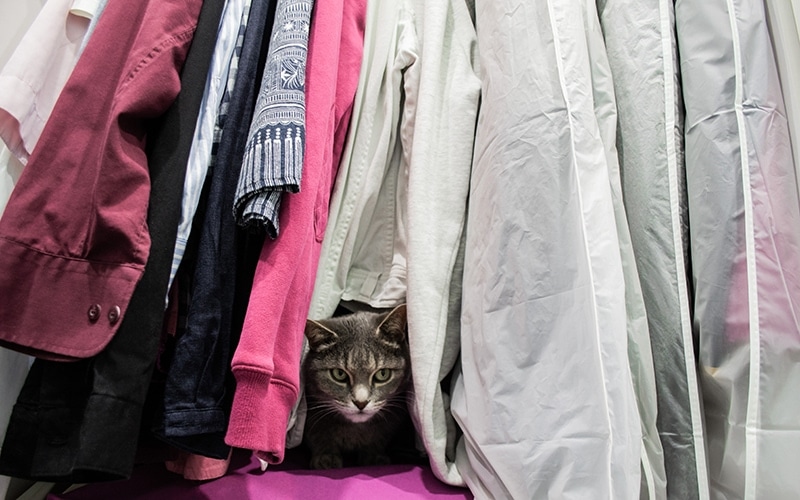
9. It’s Their Preferred Bed
It’s not unusual to buy a fancy toy or cat tree for your beloved feline only to find that they enjoy playing with the box it came in instead. Likewise, sometimes, no matter how many beds, blankets, and resting places your cats have, they may simply enjoy sleeping in a closet as a personality quirk.
There’s nothing wrong with a cat choosing to sleep in a closet, as long as it doesn’t bother you and as long as you don’t inadvertently lock them in the closet. To avoid the latter scenario though, it might be beneficial to coax your cat to use a bed intended for them or to prohibit access to your closet.
FAQ
How Do I Get My Cat to Come Out?
In most cases, your cat will come out on their own. You can try to coax them with their favorite food or treat, but trying to dig them out might only frighten them more, and they will likely return to the closet as soon as possible. Going in after them is only a good idea if you think that they are sick and need to go to the vet.
Does a Cat Hide When They Are Sick?
Cats tend to instinctively hide illness or pain, so you should take them to the vet for a checkup to determine any health issues if you suspect that this is the case.
Does a Cat Hide When They Are Sick?
Cats frequently hide illness or pain, so you should take them to the vet for frequent checkups to determine any health issues. However, many cats do hide when terminally ill. Although no one knows for sure, it is likely an instinctive behavior to protect themselves from predators in the wild.
What Are Other Popular Hiding Spots for Cats?
Cats frequently like to box themselves in when trying to hide. Common hiding places include under the bed, inside laundry baskets, on shelves, and under furniture.
Summary
Your cat probably likes the closet because it’s a dark, out-of-the-way spot where they can hide. They usually go there when they hear loud noises or when someone they do not know comes over, but they may also rely on it to give birth or deal with an illness. If you think that a health issue is to blame for your cat’s behavior, you should take them to the vet. Otherwise, they will usually come out on their own when the noise subsides or they get used to their surroundings.
- Related Read: Do Cats Like the Sound of White Noise?
Featured Image Credit: Konstantin Aksenov, Shutterstock
Contents
- The 9 Reasons Why Your Cat Hides and Sleeps in the Closet
- 1. Health Issue
- 2. Fear
- 3. New Surroundings
- 4. New Pet
- 5. Strange Visitor
- 6. Birthing
- 7. Stress
- 8. Quiet Time
- 9. It’s Their Preferred Bed
- FAQ
- How Do I Get My Cat to Come Out?
- Does a Cat Hide When They Are Sick?
- Does a Cat Hide When They Are Sick?
- What Are Other Popular Hiding Spots for Cats?
- Summary

